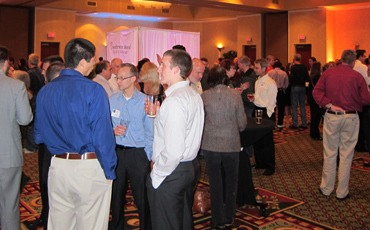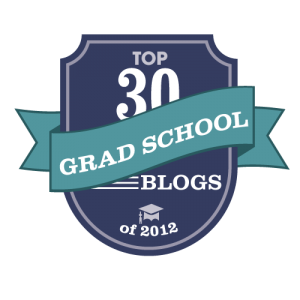Networking Isn’t Just for Social Animals
July 1, 2012
As reported in the pages of In Business magazine.

Networking is an important way to stay connected, but not every entrepreneur is comfortable with it.
With a few exceptions, human beings are social animals and like to meet and share ideas, and perhaps nowhere are people more socially “animalistic” than Madison, where networking is an essential piece of the business development process.
In Madison, the popularity of networking has spawned monthly events like the High Tech Happy Hour, the Biotech Happy Hour and, more recently, the Business Professionals Happy Hour. IB has done its part with the annual Extreme Networking program and quarterly IB Introductions.
These events only begin to scratch the surface of local networking activity, but their evolution from bare bones meet-and-greets to philanthropic contributors demonstrates how their value can grow over time. “Madison is a networking type of town,” stated Bryan Chan, president and founder of SupraNet Communications and one of the organizers of the High Tech Happy Hour. “No matter how much advertising you do or how much media you do, ultimately Madison is more of a word-of-mouth, shake hands type of business community.”
Networking tutorial
Cay Villars, a management consultant with Celebrus Facilitation, Coaching & Consulting, has written about effective networking. She notes the prospect of such interaction can be intimidating for introverts but advises them to shift the focus from themselves to serving others.
Removing concentration from the “self” also helps in social preparation. The prep work entails identifying goals for each opportunity, including a very brief elevator pitch about yourself, plus who you want to meet, what you want to learn from them, and even challenging yourself to meet three or more new people. In addition to basics like having business cards at the ready (if you are asked for one) and coming with your own readable name badge, people uncomfortable with networking can bring along a friend who can be a source of support.
When you come across someone you want to converse with, make eye contact, smile, and introduce yourself with a handshake. That’s when you focus the conversation on the other person, his or her job, and what’s it’s like where he or she works.
As Villars notes, we all act out of our beliefs about ourselves, and if an entrepreneur believes he or she is shy, it is useful to become clear on what that means. If shy is a code word for uncomfortable meeting new people, especially in social settings, a good question to ask is: Is being shy more important than developing connections critical to maintaining and growing the business?
“If even the most shy entrepreneur believes that his business will fail or be less successful without connecting to key people in the community – i.e., bankers, angel investors, venture capitalists, potential customers, and collaborators – he or she will quickly figure out creative ways to get past shyness to network and meet others,” Villars noted.
Net gains
Perhaps knowing what goes into a networking event can ease the intimidation some feel. Many networking events are linked to an industry, such as Madison’s High Tech Happy Hour and Biotech Happy Hour, while others are launched by entrepreneurs as a way of gaining some visibility, such as the Business Professionals Happy Hour. Most have their own websites and use social media to keep attendees informed about programming.
The High Tech version was established to promote Madison as an innovative community. Bryan Chan (SupraNet) and Bob Vanden Burgt, co-owner of Yahara Software, help organize an event that facilitates long-term relationship-building in part because anywhere from 30% to 35% of each month’s 300 or so attendees are attending for the first time.
After several years, organizers have tried to keep what Chan called the “movable feast” fresh by rotating the monthly venue and introducing programming concepts like the quarterly Pecha Kucha Happy Hour. Pecha Kucha is a presentation method in which 20 slides are shown for 20 seconds each, for a total presentation length of six minutes and 40 seconds. With this fast-paced format, the presentations are educational without being tedious. On one recent Pecha Kucha night, the gathering heard from a variety of presenters in technology, health care, entertainment, and the economic impact of buying local.
“They have been quite popular,” Chan said, noting that 70 people attended the most recent Pecha Kucha Night. As with the happy hour, “there is no agenda, and nobody is trying to sell you anything. These are all topics that people are interested in and are passionate about.”
Another way to maintain interest is to partner with a synergistic event, as HTHH does with the Forward Technology Festival, or to sponsor a cause. One of the HTHH’s Pecha Kucha events was focused on people doing interesting things in the community and included presentations by Middleton Outreach Ministry and Second Harvest Foodbank of Southern Wisconsin.
Professional outreach is another possibility, as was the case when laid-off technology workers were invited to attend a HTHH to make some connections.
Vanden Burgt has even witnessed business deals being consummated at a networking program, but they can also take root. “I can say there have been some rather lucrative business deals that have been done at the event or through their involvement with the event,” he said. “It’s one of those things where some of the relationships have led to some multiple, six-figure deals that I’m aware of.”
Alex Vodenlich, president of Maven LLC and an organizer of Madison’s Biotech Happy Hour, finds value in the conversations with executive colleagues that helped him solve problems. The Biotech program, which started in 2007, draws entrepreneurs, professors, grad students, and investors.
After an initial splash, organizers invigorated the event by adding a philanthropic element that could someday help the industry. “This is the first year where we’ve made donations to local nonprofits on behalf of the people who come, so we collect donations and try to raise as much money as we can,” he said. “A couple months ago, we had our donation event where we took the money we collected, and one of the main goals was to get it in the hands of organizations helping kids, partly to help close the achievement gap and partly to help kids get excited about science.”
The Biotech Happy Hour is smaller than the High Tech version, usually drawing from 75 to 100 people, but Vodenlich feels the more intimate setting is an advantage for making the personal connections that are vital to business.
These events would not happen without sponsors, and the Biotech organizers have the support of a key state industry group in BioForward and an important venue in University Research Park. The program also has gained some traction from holding happy hours at local biotech company offices, as it will this month when Lucigen sponsors a reception at its new facility.
“Business, to me, is all about personal relationships,” Vodenlich said. “That is how the world works and will always work. We have a lot of tools to communicate with nowadays, but there is something special about meeting people face-to-face. Trust is built that way and trust is one of the key ingredients in successful business partnerships.”
Get your own
In the midst of what some called “The Great Recession,” Craig Sayers started the Business Professionals Happy Hour. Part of his motivation was to promote his businesses, Excel Lending and RateOasis, and partly to help himself and other professionals weather the economic downturn.
He views such functions as a business asset because of their relationship-building aspects. “If someone is trying to make a decision on who they do business with, and he or she has a relationship and a certain trust level with that individual, the business relationship just goes much more smoothly,” Sayers opined.
The BPHH does not change venues – it’s always held at the Madison Club – and Sayers acknowledges there aren’t a lot of bells and whistles, but there is no doubt in his mind the environment is conducive to relationship-building. About 100 to 120 on the 1,000-person invitation list typically attend the monthly program. “We keep the event invitation-only because the people who come take it seriously,” he said, “and use it as part of their business development.”
Occasional learning enrichment is featured, but that takes place before the happy hour so that it remains a flowing mixer for the business owners, bankers, attorneys, and upper-level managers who typically attend. An oysters and vodka party is an annual highlight, and support of nonprofits also is part of the mix, lending the event some community-building purpose. The Wisconsin Women’s Health Foundation is among its philanthropic beneficiaries.
In Sayers’ case, the business benefits of networking have several dimensions. Since launching the happy hour, he has taken
RateOasis national, and he’s planning a similar networking event for the Milwaukee area. “The program,” he said, “has taken on a life of its own.”
Source: http://ibmadison.com/meetings?id=1488

Recent Comments